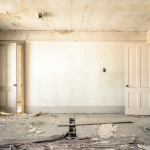Renovating your house can be an exciting and rewarding process, but it can also be overwhelming and stressful if you do not plan ahead. Whether you are looking to improve your home’s functionality, increase its value, or simply update its appearance, there are several important considerations you should keep in mind before embarking on a renovation project. In this article, we will discuss some of the most important factors to consider when renovating your house, including: a budget, timeline, design, and hiring the right professionals. Let us take a look!
Ten Considerations When Renovating Your House
1. Budget
One of the most important considerations when renovating your house is your budget. It is crucial to set a realistic budget before you start any work, as unexpected expenses can quickly add up and put a strain on your finances. Start by determining how much you can afford to spend on your renovation project, and then work with a contractor or designer to create a plan that fits within your budget. Be sure to build in a contingency fund of at least 10% of the total project cost to cover any unforeseen expenses that may arise.
2. Timeline
Another important consideration when renovating your house is the timeline. Depending on the scope of your project, renovations can take anywhere from a few weeks to several months or more to complete. Make sure you have a clear understanding of how long the project will take and plan accordingly. This includes making any necessary arrangements for temporary housing or living arrangements if you will not be able to live in your home during the renovation.
3. Design
The design of your renovation project is also a critical consideration. Whether you are renovating a single room or your entire house, it is important to have a clear idea of what you want to achieve and to work with a designer or architect to develop a plan that meets your needs and fits within your budget. Consider factors such as the overall style of your home, your personal design preferences, and any specific needs you have like peel and stick cedar wall planks, such as additional storage or improved accessibility.
4. Hiring The Right Professionals
When renovating your house, it is essential to work with the right professionals to ensure that the work is done properly and safely. Depending on the scope of your project, you may need to hire a general contractor, designer, architect, electrician, plumber, or other professionals. It is important to do your research and hire reputable, licensed professionals who have experience with the type of work you need to be done. Be sure to get multiple quotes and check references before making a decision.
5. Permits And Regulations
Another important consideration when renovating your house is permits and regulations. Depending on the scope of your project, you may need to obtain permits from your local government or comply with specific regulations related to building codes, zoning laws, or environmental regulations. It is important to work with your contractor or designer to ensure that you are in compliance with all applicable laws and regulations before starting any work.
6. Energy Efficiency
Energy efficiency is an important consideration when renovating your house. There are many ways to improve the energy efficiency of your home, such as installing energy-efficient windows and doors, upgrading insulation, or installing a high-efficiency HVAC system. These improvements can not only save you money on your energy bills but can also increase the value of your home and help reduce your carbon footprint.
7. Material Quality
The quality of the materials you choose for your renovation project is also an important consideration. It is tempting to choose less expensive materials to save money, but this can end up costing you more in the long run if the materials wear out quickly or need to be replaced sooner than higher-quality options. Consider the durability, maintenance requirements, and overall lifespan of the materials you choose, and weigh the upfront costs against the long-term benefits.
8. Personalization
Do not forget to consider how your renovation project can reflect your personal style and taste. While it is important to stay within your budget and comply with regulations, it is also important to create a space that feels like home and reflects your personality. Work with your designer or contractor to incorporate personalized touches and unique design elements that make your home feel like your own. This can include anything from bold colors or patterns to customized built-in features or artwork.
9. Functionality And Space
It is important to consider how the renovated space will function and whether it will meet your specific needs. For example, if you are renovating a kitchen, think about the flow of the space, the placement of appliances, and the amount of storage you will need. If you are renovating a bedroom, consider factors such as closet space, lighting, and privacy. It is also important to optimize the use of space to make the most of every square foot. This could include using built-in storage solutions, utilizing vertical space, or reconfiguring the layout of a room.
10. Maintenance And Upkeep
Another important consideration is the maintenance and upkeep required for your renovated space. While you may be focused on the initial renovation costs, it is important to also consider the ongoing costs associated with maintaining and repairing the space. For example, if you choose high-maintenance materials for your flooring or countertops, you may need to spend more time and money on cleaning and upkeep. Similarly, if you install high-tech features or appliances, you may need to factor in ongoing maintenance costs or repairs. Consider the long-term costs associated with your renovation choices to ensure that you are making the best decision for your budget and lifestyle.
There You Have It
Renovating your house can be a complex process that requires careful planning and consideration. By taking the time to develop a clear plan, set a realistic budget, work with the right professionals, and comply with all applicable regulations, you can achieve a successful renovation project that meets your needs and improves the value and functionality of your home.







